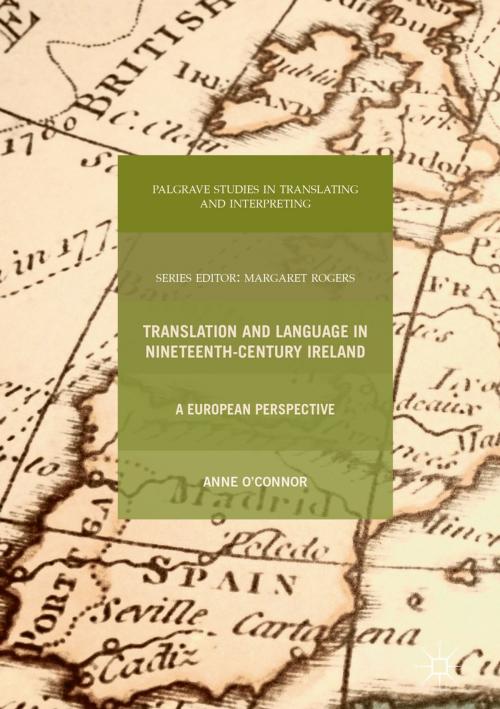Translation and Language in Nineteenth-Century Ireland
A European Perspective
Nonfiction, Reference & Language, Language Arts, Translating & Interpreting, Linguistics| Author: | Anne O’Connor | ISBN: | 9781137598523 |
| Publisher: | Palgrave Macmillan UK | Publication: | March 16, 2017 |
| Imprint: | Palgrave Macmillan | Language: | English |
| Author: | Anne O’Connor |
| ISBN: | 9781137598523 |
| Publisher: | Palgrave Macmillan UK |
| Publication: | March 16, 2017 |
| Imprint: | Palgrave Macmillan |
| Language: | English |
This book provides an in-depth study of translation and translators in nineteenth-century Ireland, using translation history to widen our understanding of cultural exchange in the period. It paints a new picture of a transnational Ireland in contact with Europe, offering fresh perspectives on the historical, political and cultural debates of the era. Employing contemporary translation theories and applying them to Ireland’s socio-historical past, the author offers novel insights on a large range of disciplines relating to the country, such as religion, gender, authorship and nationalism. She maps out new ways of understanding the impact of translation in society and re-examines assumptions about the place of language and Europe in nineteenth-century Ireland. By focusing on a period of significant linguistic and societal change, she questions the creative, conflictual and hegemonic energies unleashed by translations. This book will therefore be of interest to those working in Translation Studies, Irish Studies, History, Comparative Literature and Cultural Studies.
This book provides an in-depth study of translation and translators in nineteenth-century Ireland, using translation history to widen our understanding of cultural exchange in the period. It paints a new picture of a transnational Ireland in contact with Europe, offering fresh perspectives on the historical, political and cultural debates of the era. Employing contemporary translation theories and applying them to Ireland’s socio-historical past, the author offers novel insights on a large range of disciplines relating to the country, such as religion, gender, authorship and nationalism. She maps out new ways of understanding the impact of translation in society and re-examines assumptions about the place of language and Europe in nineteenth-century Ireland. By focusing on a period of significant linguistic and societal change, she questions the creative, conflictual and hegemonic energies unleashed by translations. This book will therefore be of interest to those working in Translation Studies, Irish Studies, History, Comparative Literature and Cultural Studies.















